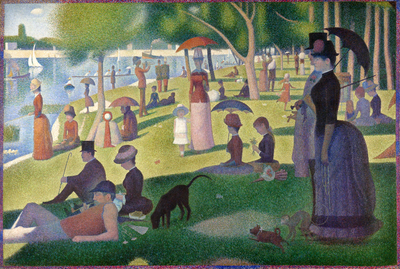

Dear Theophilus,
When most people think of defining the word Catholic, they probably think of it as the building on the corner where some of them go each Sunday, or at least at Easter and Christmas. Others will immediately think of the Catholic Church’s hierarchy, starting with its visible head, the Pope, and working their way down through the clergy of cardinals, bishops and priests. My experience has been that these same people usually equate Catholicism with a set of rules and regulations that hamper their individualism. It’s this thinking as individuals that keeps them from understanding the true meaning of Catholic.
Those who have taken the time to study the question a little further will tell you that the definition of catholic is “universal”. This comes from its etymological root in Greek of katholikos, coming from the phrase kath’holou (on the whole or in general) from the two words kata (about) and holos (the whole). In other words, catholic means to embrace the whole or something that is universal.
When I first began to grasp this concept of Catholicism as being universal, my human arrogance saw it as meaning that the Catholic Church (and more completely, Christianity) is for every person on the earth – universal. I say this was human arrogance because I perceived the Catholicism as being something human as opposed to divine. I couldn’t have been more wrong.
Catholicism is universal in that it encompasses all of Creation. When we look at sacred scripture, the Bible begins with the story of Creation:
In the beginning when God created the heavens and the earth. (Gen 1:1)
and then the Bible ends with a prophecy of Creation’s fulfillment in the New Jerusalem (Rev 21:9 – 22:5) telling us that Creation will be perfected since
Nothing accursed will be found there anymore. But the throne of God and of the Lam will be in it, and his servants will worship him. (Rev 22:3)
Since God’s plan is about all of Creation, it is universal or Catholic. We only need to look at the world around us to be overwhelmed by its immensity.
It is very scary and humbling, then, to realize that we are but a tiny speck in the immenseness of this Catholic Creation. This brings me back to my comment of human arrogance in thinking that we are central to God’s Creation. According to Genesis, mankind wasn’t created until the sixth day – the last of all of God’s Creation. Although God did give us dominion over His Creation, we need to remember that it is His and that we are only a small part of His universe. Understanding this we need to ask ourselves two very important questions: Where do I fit into God’s universal or catholic plan? and How can I understand God’s will for myself in such a large project as all Creation?
According to Fr. Robert Barron, we can’t – our minds simply cannot comprehend the vastness of God’s plan for Creation. In his Word on Fire lecture series, Fr. Barron used a few different parallels to try to explain our role in creation and our inability to understand the bigger or catholic picture.
Fr. Barron spoke of Seurat’s pointillist masterpiece Sunday Afternoon on the Island of La Grande Jatte. When you look at it up close, you can only perceive a few dots and a smudge of colour. Stepping back you might begin to see how these dots and smudges can for shapes. It’s only when you look at the entire work from across the room that the artist’s complete vision can be understood. Since we are but a dot or a smudge on the canvas of God’s Creation, it is impossible for us to understand His entire vision for His universal creation.
Fr. Barron also spoke of the soldiers involved in the D-Day landings in Normandy. General Eisenhower, the man in charge of the operation, could see the broad scope of the battle plan – the purpose of each small skirmish to the whole that had to be fought to ensure victory. A sergeant leading his platoon only needed to be concerned about achieving his objective – taking the crest of a small hill or securing a bridge. If he had tried to comprehend the entire battle plan, it would have only muddled his understanding of his immediate situation, lessening his chance for success and thus endangering the larger victory.
It is our job as good Catholics to marvel at the immensity of God’s Creation, accept in awe that Catholicism encompasses the universal creation and to obediently understand our role in God’s plan, leaving the design to our Lord and Master.

Robert,
ReplyDeleteI jumped here from your link-up at CBN, I think your post is spot on and really enjoyed the aspect of it encompassing all of creation, it had never quite been verbalized to me quite like that before. Look forward to reading more.
+Chad.
Thanks for your kind comment Chad. I was really quite blown away once I really realised the full meaning of Catholicism. It was also nice to read your words because I never can figure out if I'm making sense or not. ;~)
ReplyDeleteHappy to have you along for the journey and I look forward to growing together in faith with you.
Robert